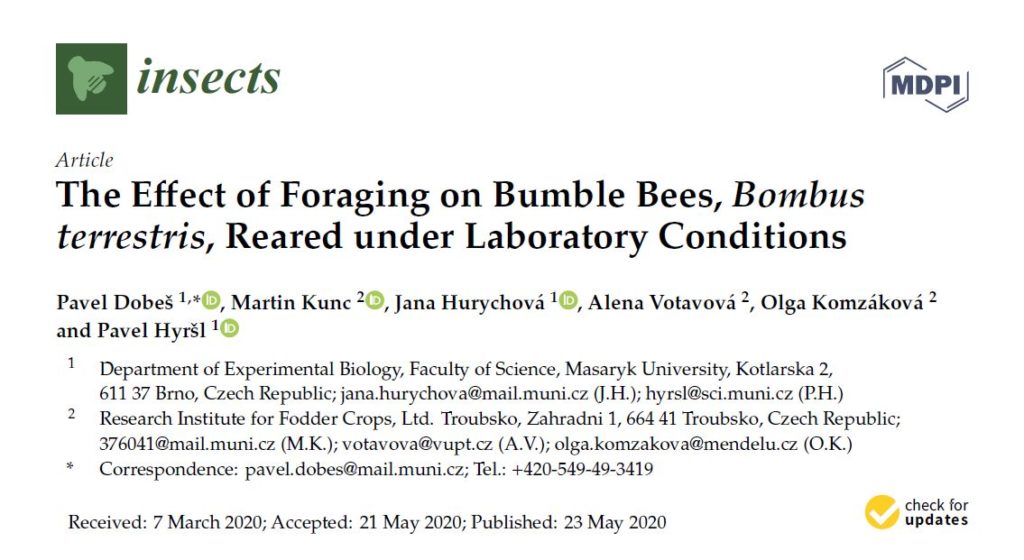
ABSTRACT: Bumble bees are important pollinators broadly used by farmers in greenhouses and under conditions in which honeybee pollination is limited. As such, bumble bees are increasingly being reared for commercial purposes, which brings into question whether individuals reared under laboratory conditions are fully capable of physiological adaptation to field conditions. To understand the changes in bumble bee organism caused by foraging, we compared the fundamental physiological and immunological parameters of Bombus terrestris workers reared under constant optimal laboratory conditions with workers from sister colonies that were allowed to forage for two weeks in the field. Nutritional status and immune response were further determined in wild foragers of B. terrestris that lived under the constant influence of natural stressors. Both wild and laboratory-reared workers subjected to the field conditions had a lower protein concentration in the hemolymph and increased antimicrobial activity, the detection of which was limited in the non-foragers. However, in most of the tested parameters, specifically the level of carbohydrates, antioxidants, total hemocyte concentration in the hemolymph and melanization response, we did not observe any significant differences between bumble bee workers produced in the laboratory and wild animals, nor between foragers and non-foragers. Our results show that bumble bees reared under laboratory conditions can mount a sufficient immune response to potential pathogens and cope with differential food availability in the field, similarly to the wild bumble bee workers.





